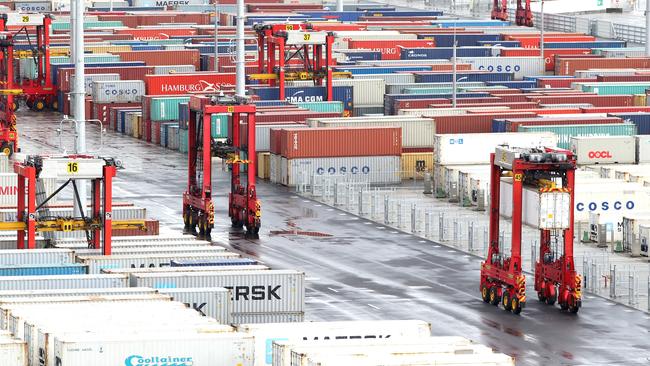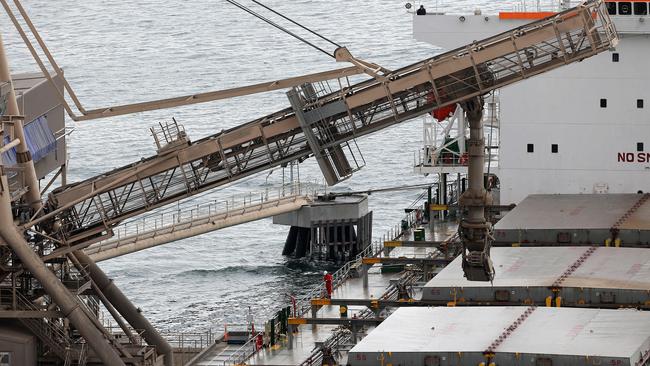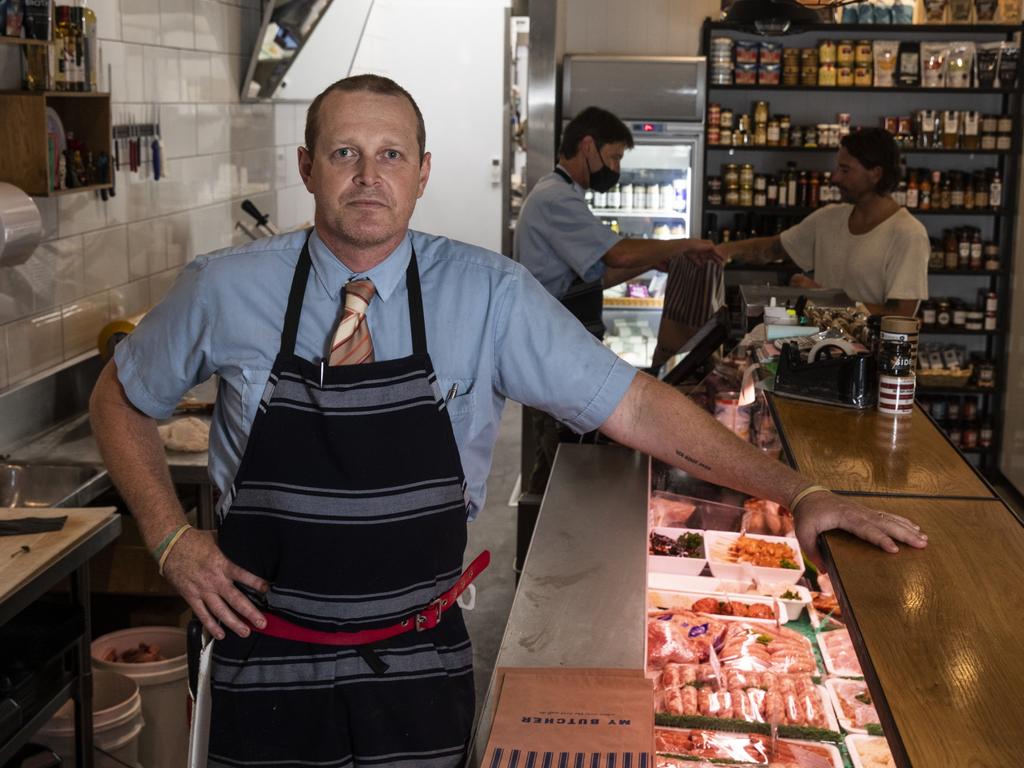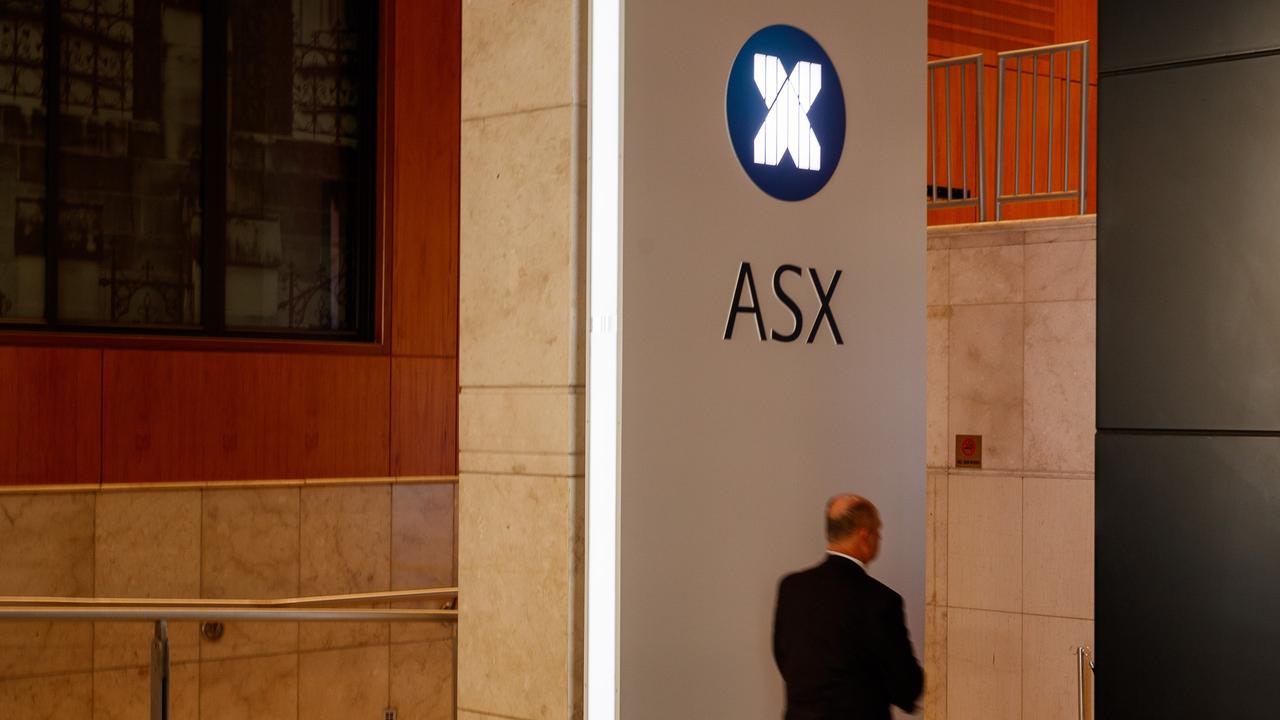Post-Covid economy a mixed bag for Australian companies
The mix of property price growth, a tight labour market, booming exports and disrupted supply chains are helping and hindering major Australian companies.

Returning economic growth, labour shortages, increasing commodity and property prices and supply chain disruptions are forcing companies to reassess the post-Covid economy.
At its annual general meeting on Thursday, logistics, terminals and infrastructure giant Qube told shareholders it had been trading ahead of expectations in the first quarter and now expects to post a “strong increase” in full-year profit, despite shipping interruptions and strikes at container terminals.
It said its logistics and infrastructure division was tracking “well ahead of expectations” on high agriculture and steel volumes while its ports and bulk operations held steady as high commodity transport volumes were offset to “continued driver shortages” in a relatively tight labour market.
However, its Patrick terminals business – of which it owns 50 per cent, alongside Canadian equity player Brookfield – saw revenue and earnings track below expectations after it was hit by “vessel scheduling integrity issues” and recent industrial action from the Maritime Union of Australia.
Qube said it anticipated Patrick’s earnings growth would miss forecasts “due to the expectation that the factors that caused the first-quarter underperformance, and particularly the ongoing impact of vessel scheduling issues and industrial disruption, will continue”.
Other companies that flagged supply side issues on Thursday include home appliance manufacturer Breville, with chief executive Jim Clayton telling shareholders at its AGM that “logistics steps” that used to take one week were now taking between four and six.
Mining explosives giant Orica handed down a $174m loss, saying earnings were affected by “disrupted thermal coal trade flows due to trade tensions with China, increased sea freight costs, and rising input costs”, alongside ongoing labour shortages in the US and Canada that were “hampering the region’s recovery”.
Booming global demand for agricultural products saw GrainCorp hand down a full-year net profit after tax of $139m on Thursday while announcing a $50m on-market buyback as the company successfully managed its supply chain to distribute a record east coast crop and increase grain exports six-fold.
In an example of the rapid increase in capacity being implemented by businesses across the world, GrainCorp CEO Robert Spurway said the company had hired thousands of new workers and opened new grain storage sites to meet demand.
“We have prepared for the 2021-22 harvest by building a significant amount of new storage capacity and reopening ‘flex’ sites,” he said. “We have also recruited over 3000 harvest casuals to help manage the demand.”

Demand for labour in an already tight market saw accounting software provider Xero’s full-time equivalent employee headcount lift 22 per cent over the past year to more than 4100, excluding staff from acquired companies.
REA Group CEO Owen Wilson said the booming property market resulted in its flagship realestate.com.au property listings website reach a record 145.5 million visits in October, while revenue over the three months to the end of September lifted 35 per cent to $264m.
“Current residential market conditions remain strong. Conditions are perfect for sellers to list with buyers out in force,” Mr Wilson said at REA’s AGM.
“These excellent market conditions are underpinned by continued low interest rates and healthy bank liquidity, all of which points to a continuation of this positive momentum.”
REA Group and HiPages are part-owned by News Corporation, publisher of The Australian.
Ingenia Communities chair Jim Hazel said the group’s lifestyle communities and holiday parks were benefiting from high property price growth and sustained demand for domestic travel.
“We are seeing support for the desire to downsize through rising home prices, movement out of cities to coastal and regional areas and the attractive lifestyle our communities provide,” he told shareholders at Ingenia’s AGM.






